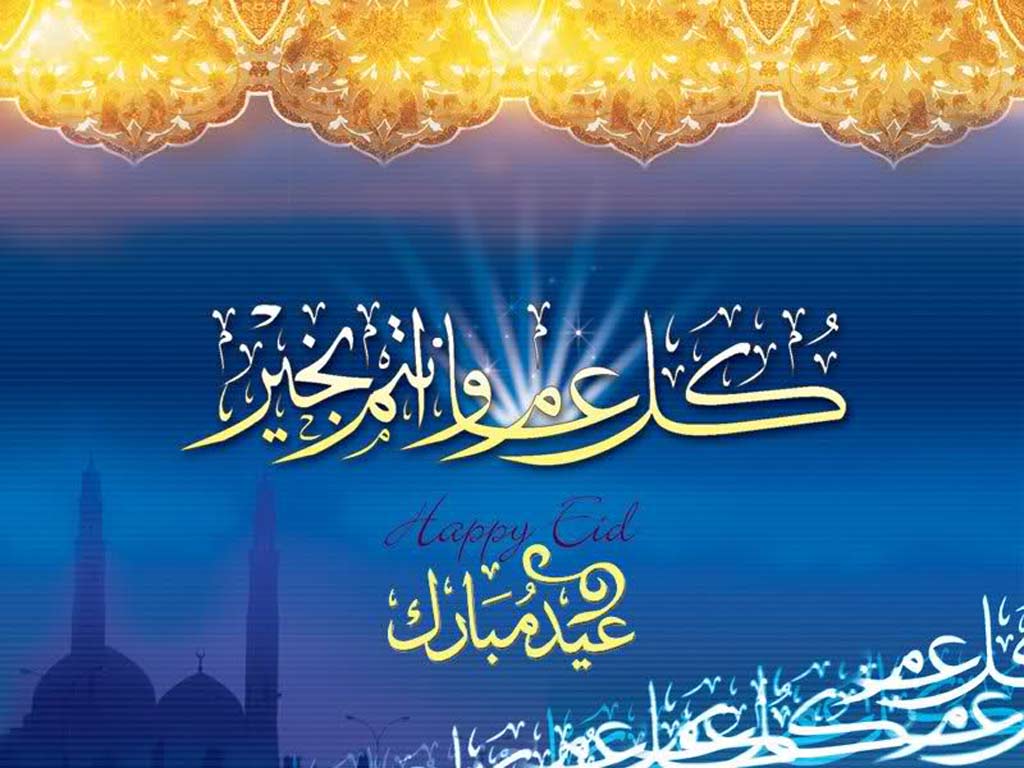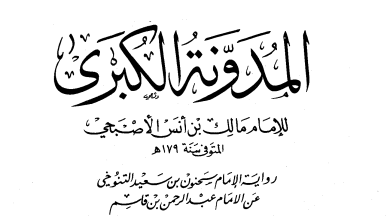Imām al-Shāṭibī’s Argument for the Necessity of Following One Madhhab in its Entirety
Imām al-Shāṭibī’s Argument for the Necessity of Following One Madhhab in its Entirety
Compiled by: Mufti Zameelur Rahman
Imām Abū Isḥāq al-Shāṭibī (d. 790) makes a powerful uṣūlī argument in his al-Muwāfaqāt for the necessity of following one madhhab in its entirety. However, his language and style of speech is difficult. Hence, rather than producing a translation, I will provide an overview of some of the salient points in his discussion below. One will notice that many of his arguments and counter-arguments are relevant to contemporary discussions on the issue. His full discussion can be found in the “third issue” related to ijtihād and taqlīd (al-Muwāfaqāt, Dār Ibn ‘Affān, 5:59 – 113). Any comments from myself will be added in square brackets.
The Truth in a Legitimate Point of Disagreement is Only One
In secondary areas of disagreement, the truth with Allāh is only one, just as the truth in primary areas of disagreement is one. That is, even in “legitimate” areas of disagreement amongst the jurists, the truth in the Sharī‘ah is only one and the intent of the Lawgiver is only one. [For example, while the disagreement over whether flowing blood breaks wuḍū’ or not is a legitimate disagreement in Sharī‘ah, the truth with Allāh is only one of the two opinions and both opinions are not simultaneously correct or true.]
However, errors are excused in “legitimate” areas of disagreement, not because these errors were also intended by the Lawgiver, but because the person following the erroneous view expended his effort to find the Lawgiver’s intent in matters that are not absolutely and categorically clear in the scriptural texts. Hence, the disagreements are due to differences in understanding (ikhtilāf al-anẓār), not due to an intrinsic disagreement or discrepancy in the Sharī‘ah itself.
[Qāḍī Abu al-Ṭayyib said: “The statements of the Ṣaḥābah are all categorically clear that the truth in the sight of Allāh is one from the different opinions.” Ibn Amīr al-Ḥājj said: “The truth [in matters of disagreement] is one with Allāh according to the Ahl al-Sunnah wa al-Jamā‘ah.” ‘Alā’ al-Dīn al-Bukhārī (d. 730) said in Kashf al-Asrār: “They have reached consensus that when there is a conflict between two scriptural texts with regards to prohibition and permission, or negation and compulsion, that the truth is one of them.” For references to these statements, see al-Radd ‘ala al-Muftī, al-Dār al-Nūrāniyyah, p 104.]This issue has been explicitly commented on by the imāms of the Ḥanafī madhhab.
Ḥāfiẓ Abu l-Qāsim ‘Abdullāh ibn Muḥammad Ibn Abi l-‘Awwām al-Sa‘dī (d. 335), the Qāḍī of Egypt, and a student of Imām al-Nasa’ī (215 – 303 H), Imām al-Ṭaḥāwī (239 – 321 H), Ḥāfiẓ Abū Bishr al-Dūlābī (224 – 310 H) and others, writes in his Faḍā’il Abī Ḥanīfah:
Abū Ja‘far Aḥmad ibn Muḥammad ibn Salāmah [al-Ṭaḥāwī] narrated to me, saying: Sulaymān ibn Shu‘ayb al-Kaysānī narrated to me, saying: My father narrated to me, saying: Muḥammad ibn al-Ḥasan dictated to us, saying:
When the people differ over an issue, one jurist regarding [something] as impermissible and another regarding [that very same thing] as permissible, and it is in the capacity of both of them to exercise their judgement [i.e. perform ijtihād], the truth with Allāh (Great and Glorious is He) is one: either [it is] permissible or impermissible. It won’t be both permissible and impermissible with Him when it is the same thing, but the truth with Him (Great and Glorious is He) is one.
One in whose capacity it is to exercise judgement [i.e. perform ijtihād] has been given the obligation of exercising his judgement until he acquires the truth that is with Him in his judgement. If he acquires the truth that is with Allāh (Great and Glorious is He) in his judgement and his exertion, and that is in his capacity, he has acquired and accomplished what was made obligatory on him. If he had acquired what was made obligatory on him, in terms of exercising his judgement, but he did not acquire the exact truth with Allāh (Great and Glorious is He), he has accompolised what was made obligatory on him, and is rewarded.
As far as one asserting that a jurist has regarded [something] as permissible and another jurist has regarded [that very thing] as impermissible in the same path, and both of them are correct with Allāh (Great and Glorious is He), this is something that should not be asserted. In fact, the truth with Allāh (Great and Glorious is He) is one, and the people have accomplished what was made obligatory on them when they exercised [their judgement] and they gave a verdict based on their ijtihād, and what they did was in their capacity, even if one of them did not acquire what he was supposed to have given a verdict on – even still, he has performed ijtihād, and has thus accomplished what was made obligatory on him, even if he has erred, because the truth with Allāh (Great and Glorious is He) in all things is one.
All this is the view of Abū Ḥanīfah, Abū Yūsuf and our opinion. (Faḍā’il Abī Ḥanīfah, al-Maktaba al-Imdādiyyah, p. 385-6)
——————
With regards to the chain of transmission, Sulaymān ibn Shu‘ayb (ibn Sulaymān ibn Sulaym) al-Kaysānī al-Miṣrī (185 – 274), the teacher of al-Ṭaḥāwī, is described as “thiqah” by al-Sam‘ānī (al-Ansāb, Maktaba Ibn Taymiyyah, 10:526) and al-‘Uqaylī (Lisān al-Mīzān, Maktab al-Maṭbū‘āt al-Islāmiyyah, 4:160). His father, Shu‘ayb ibn Sulaymān al-Kaysānī (d. 204), was amongst the prominent students of Imām Muḥammad, who narrated the masā’il known as “Kaysāniyyāt” from him.
The passage is also found in al-Dhahabī’s Manāqib Abī Ḥanīfah (p. 84) and al-Kawtharī’s Bulūgh al-Amānī (al-Maktabat al-Azhariyyah, p. 47-8), both quoting from the same source.
Al-Shāṭibī said: “The verses on censuring disagreement and ordering referral to the Sharī‘ah are many, all of which are decisive in stating that there is no disagreement in it, and that it is rather fixed on a single source and a single view. Al-Muzanī, the companion of al-Shāfi‘ī said: ‘Allāh has censured disagreement and ordered when it occurs to refer to the Book and Sunnah.’” (al-Muwāfaqāt, 5:61)
If we said that all legitimate opinions were intended by Sharī‘ah and are equally true in the eyes of Sharī‘ah, it will result in making a person accountable for something that is not physically possible (taklīf mā la yuṭāq). For example, if one evidence demanded that a person must carry out a certain action and another evidence demanded that a person must refrain from that same action, and the two sets of evidence were advocated by different mujtahid imāms, if we said that both rulings were intended by Sharī‘ah and are simultaneously true, then the Sharī‘ah is simultaneously ordering a person to do the action and refrain from it, which is not physically possible.
[An actual example of this would be recitation behind the imām in salāh, because according to some imāms it is wājib and according to others it is ḥarām (i.e. makrūh taḥrīmī). Hence, if we said both of these opinions are simultaneously correct, it would mean the Sharī‘ah is simultaneously ordering the muqtadī (the one praying behind the imām) to recite and to not recite, which is not possible.]Moreover, not only would this amount to “making a person accountable for something that is not physically possible”, but it would entail the Sharī‘ah is intrinsically contradictory, as these two conflicting orders imply an action can simultaneously occur and not occur, which is absurd.
Furthermore, the very fact that mujtahids exerted themselves to find the strongest opinion shows that the truth in areas of legitimate disagreement is only one, since if it was multiple, they would have been content with whatever opinion or evidence they encountered, without seeking to find the strongest view.
Al-Shāṭibī regards these proofs for the unity of the Sharī‘ah in its origin as absolutely decisive (qaṭ‘ī) (al-Muwāfaqāt, 5:74). He addresses some objections that may be made against this claim.
Some people argue that the fact that there are open-ended scriptural texts and ambiguous verses proves that the Lawgiver intended for there to be disagreement. Al-Shāṭibī responds that there is a difference between the institution of divine decree and the institution of law and Sharī‘ah. In terms of divine decree, yes, Allāh intended for there to be disagreement amongst His slaves, some disagreements falling within parameters that are excusable and forgiven, and some within parameters of illegitimate disagreement. But this does not mean the legal institution (Sharī‘ah) itself advocates these disagreements. The purpose of these open-ended and ambiguous texts is not to establish multiplicity in the Sharī‘ah itself, but to test the slaves in how they respond to them.
“Every Mujtahid is Correct”?
Al-Shāṭibī addresses the statement made by some people that “every mujtahid is correct.” He states that there is consensus that a mujtahid cannot leave his own opinion for another opinion; but if this statement was taken literally, a mujtahid should be allowed to follow another opinion, because the other opinion is also true. This fact demonstrates that the statement is not literal and absolute.
Rather, it means: every mujtahid is correct in so far as he has expended his effort to find the truth, not that the opinion he adheres to is necessarily correct. That is, every qualified mujtahid is correct in his methodology and approach, even if his conclusions are technically incorrect in the view of Sharī‘ah. (al-Muwāfaqāt, 5:72-3)
“Disagreements are a Mercy”?
Al-Shāṭibī quotes a number of early scholars who stated that disagreement is a mercy and creates flexibility, which apparently goes against the above claim. Al-Shāṭibī first counters this with Ibn Wahb’s report from Imām Mālik:
“There is no flexibility in the disagreement of the companions of Allāh’s Messenger (Allāh bless him and grant him peace). The truth is only with one.”
He was asked: “What of the one who says every mujtahid is correct?” He said: “This is not so. Two conflicting opinions are not both correct.” (al-Muwāfaqāt, 5:75)
Then al-Shāṭibī explains that the meaning of “flexibility” and “mercy” in the statement of the early scholars is in reference to opening the door of ijtihād and creating scope for ijtihād, not that the individual disagreements are themselves good or a mercy. The Ṣaḥābah were forced to look into the evidences of Sharī‘ah to find solutions to different issues. Disagreements occurred because of the differences in the perspectives and understandings of those who looked into the Sharī‘ah. This does not mean there is intrinsic disagreement in the Sharī‘ah itself. But because the Ṣaḥābah looked into the issues and differed, this made it possible for the mujtahids after them to exercise ijtihād and come up with rulings on new issues. If the Ṣaḥābah had not differed, later mujtahids would experience great difficulty in coming up with new solutions based on ijtihād, for fear of being contradicted by an alternative ijtihād. From this perspective, disagreements are a mercy.
To prove that this is the meaning of the statement of the early scholars, al-Shāṭibī quotes Qāḍī Ismā‘īl (d. 282) who said:
“The flexibility in the disagreement of the companions of Allāh’s Messenger (Allāh bless him and grant him peace) is a flexibility in exercising judgement. But as for it being flexible for a person to adopt the view of any one of them even if the truth according to him is not in it, then no. However, their disagreement shows that they expended effort and disagreed.”
Ibn ‘Abd al-Barr said: “The statement of Ismā‘īl is excellent indeed!” (al-Muwāfaqāt, 5:75)
[Al-Subkī said: “The Qur’ān proves that mercy dictates not disagreeing. Allāh (Exalted is He) said: ‘They will remain disagreeing except those that your Lord has mercy upon.’…Disagreement is of three types: the first of them is in the fundamentals which is what is alluded to in the Qur’ān, and there is no doubt that it is heresy and misguidance; the second is in political views and wars, and this is also ḥarām as it entails squandering people’s interests; and the third is in the peripheral issues like ḥalal and ḥarām etc. That which is apparent to us, and is something almost categorically true, is that agreement is more favourable than disagreement.” (al-Ibhāj, Dār al-Kutub al-‘Ilmiyyah, 3:19)]A Layperson is not at Liberty to Select the Opinion of Any Mujtahid He Likes
Some people argue based on the ḥadīth: “My Ṣaḥābah are like stars so whichever of them you follow you will be guided,” that the views of individual Ṣaḥābah are independent proofs, and the fact that they differed demonstrates that conflicting views are built into the foundation of Sharī‘ah. Al-Shāṭibī responds, firstly, by pointing out that the ḥadīth is not strong, and, secondly, even accepting its authenticity, it means each Ṣaḥābī in isolation is a proof. That is, a person who has encountered only the opinion of an individual Ṣaḥābī on a certain issue, and thus follows him, will be correct because he has adopted the correct methodology of following a mujtahid scholar. The ḥadīth does not mean that the Ṣaḥābī is an intrinsic and independent proof in Sharī‘ah or that his opinion is ultimately correct. On the other hand, if a person was exposed to two conflicting views, that is a different situation which does not fall under the purview of this ḥadīth. (al-Muwāfaqāt, 5:81)
A layperson who encounters the opinion of a single mujtahid on an issue may follow that view. However, once he is exposed to competing opinions from different mujtahids on that same issue, he is no more at liberty to simply adopt a view. He must now assess which is stronger and apply his mind. (al-Muwāfaqāt, 5:83) He must do this by assessing the strengths and weaknesses in the qualifications of the mujtahids themselves [and not the strengths and weaknesses of the evidences, as he is not qualified to do this]. He would do this by assessing which mujtahid is more learned, more pious, and so on. (al-Muwāfaqāt, 5:81)
For a layperson, the verdict of a mujtahid is equivalent to the textual evidence for a mujtahid. Thus, just as a mujtahid cannot follow two conflicting evidences simultaneously, but must assess the evidences to find the strongest view in his judgement, a layperson similarly cannot simultaneously follow two mujtahids who disagree without first applying his mind and finding who is more worthy of being followed based on his judgement. (al-Muwāfaqāt, 5:76)
[If a layperson did not assess which mujtahid is superior and proceeded to act on an opinion before such assessment, he would be acting on a view without having firm conviction that it is true, as he holds both opinions as equally valid. On this point, Taqī al-Dīn al-Subkī said:“The expansion of the chest is necessary in order that one has firm conviction and acts on what he has firm conviction in. As for one who proceeds to do an action while he knows there is disagreement of the scholars on it, and he does not have firm conviction in its permissibility, based either on ijtihād [if he is a mujtahid] or taqlīd [of one he believes is superior], but rather he knows only that some people have said it is ḥarām and some have said it is ḥalal, I believe that he is sinful, because he proceeded with doubt in the ruling of Allāh (Exalted is He).” (al-Sayf al-Maslūl, Dār al-Fatḥ, p. 389)]
It is incorrect to postulate that a layperson can adopt any view he likes from the views of the mujtahids for two reasons:
First, this is based on the view that there can be actual conflict in the Sharī‘ah itself which has been disproven earlier.
And secondly:
“The purpose of instituting the Sharī‘ah is to take an accountable person out of the impulse of his desires. Giving him the option of two views defeats this objective, and this is inadmissible. It is established that the Sharī‘ah comprises of particular benefits in each issue and of universal benefits in general. As for the particular benefits, it is what is expressed by the evidence of each ruling and its wisdom. As for the universal benefit, it is that the accountable person is entered into a fixed system of legal obligations in all his dealings, whether in terms of belief, speech or action, so that he is not a follower of his desires like an animal let loose, but is subdued by the reins of Sharī‘ah. However, when we give the muqallids a choice in the madhhabs of the imāms to select from them the most pleasing of them to them, they will have no reference-point but following their desires in this selection. And this defeats the purpose of instituting the Sharī‘ah. Hence, the view of giving [the accountable person] an option is not correct at all.” (al-Muwāfaqāt, 5:78)
Based on this, a layperson is not at liberty to select any opinion he fancies from the different opinions of the mujtahids.
Moreover, to give a layperson such an option entails that religious obligation (taklīf) will be eliminated in every issue in which there is disagreement, because the person now has the option to do something or to not do it. On the other hand, if he has the obligation of assessing which view is stronger, he will be tied down to one view, and religious obligation will not be eliminated. (al-Muwāfaqāt, 5:83)
Al-Shāṭibī makes it clear in a couple of places that this line of argument means that a person must adhere to one madhhab in its entirety (bi kamālihī) and not shift from it at all. If he shifts, then that must be a complete shift, and not a partial one. (al-Muwāfaqāt, 5:97, 99).
Tatabbu‘ al-Rukhaṣ
If a layperson is at liberty to adopt any opinion he likes, this would lead to seeking out the easiest view (tatabbu‘ al-rukhaṣ) of every madhhab, which is impermissible by agreement, as related by Ibn Ḥazm. (al-Muwāfaqāt, 5:82) [Ibn ‘Abd al-Barr, a-Bājī, Ibn al-Salāḥ and others also relate consensus on this.]
Al-Shāṭibī highlights some of the dangers of tatabbu al-rukhaṣ like: treating religion lightly, following unverified opinions and the possibility of falling into “talfīq” (adopting the opinions of two mujtahids in such a way that the resultant action is invalid according to both). (al-Muwāfaqāt, 5:102-3)
Some have argued that tatabbu al-rukhaṣ is justified because of the ḥadīth, “I was sent with the easy monotheism” (al-Muwāfaqāt, 5:99). Al-Shāṭibī answers that the “ease” refers to the Sharī‘ah that the Prophet (peace and blessings be upon him) was sent with which does not allow tatabbu al-rukhaṣ. Hence, to claim that it does merely based on the description of it being “easy” is a mere assertion without evidence.
People Taking Advantage of Differences of Opinion
Al-Shāṭibī laments that people have become unmindful of this principle, so much so that the muqallids amongst the jurists give fatwa to their close relatives and friends with such opinions that they would not issue to others, based on certain objectives and motives. (al-Muwāfaqāt, 5:84)
Al-Shāṭibī presents several texts of his madhhab showing it is impermissible to jump from view to view. For example, al-Bājī said:
“Often someone to whom a situation of oaths etc. occurs asks me: maybe there is a transmission in this [of a different view], maybe there is some dispensation in it? They think this is something permissible and acceptable. Had the jurists condemned them repeatedly for this, they would not be asked this, nor would they ask me or anyone else. This is something in which there is no disagreement amongst Muslims, whose opinions are taken into consideration in consensus, that it is not permissible and not acceptable, and it is not permissible for anyone to give fatwa in the religion of Allāh except on the truth that he believes that it is the truth, regardless of the approval of those who approve and the disapproval of those who disapprove…How is it permissible for this mufti to give fatwa on what he desires or give fatwa to Zayd on something that he wouldn’t give fatwa on to ‘Amr because of friendship between them or some other motive?!…” (al-Muwāfaqāt, 5:90-1)
Al-Shāṭibī says:
“The muqallid, in terms of the different views that occur to him, is equal to this mufti that he mentioned.” (al-Muwāfaqāt, 5:92)
Using Disagreements as a Proof of Permissibility
Some people even go as far as to regard disagreement in an issue as a proof in itself of the permissibility of something. So for example, a fatwa will be passed that something is impermissible, and someone would object: “Why do you say it is impermissible, when there is disagreement in it?” Thus, disagreement is made a proof of permissibility, and not the evidence of Sharī‘ah or the superiority of a mujtahid holding the opposing view.
Al-Khāṭṭābī transmitted from one individual: “Since people differed about intoxicating beverages, and they reached consensus on the prohibition of grape wine and differed over the rest, we will declare what they agreed on to be ḥarām as being ḥarām and declare everything else as permissible.”
Al-Khaṭṭābī responds: “This is a despicable error. Allāh has ordered those who differ to refer that which they differ in to Allāh and His Messenger…If what this person said is correct, it would necessitate the like of it in Ribā, Ṣarf and Mut‘ah, as the ummah differed in these!.. Disagreement is not a proof.” (al-Muwāfaqāt, 5:93)
Al-Shāṭibī further explains: “The one who says this is in essence following his desires and is making the agreeable view a proof in his favour and something to ward off criticism from himself. Hence, he is taking the view as a means to follow his desires, not as a means to piety. Thus, this is extremely far from compliance to the orders of Sharī‘ah and is much closer to taking his desires as god.” (al-Muwāfaqāt, 5:94)






